The Batman: How The Justice League Help Bruce Wayne Find His Identity
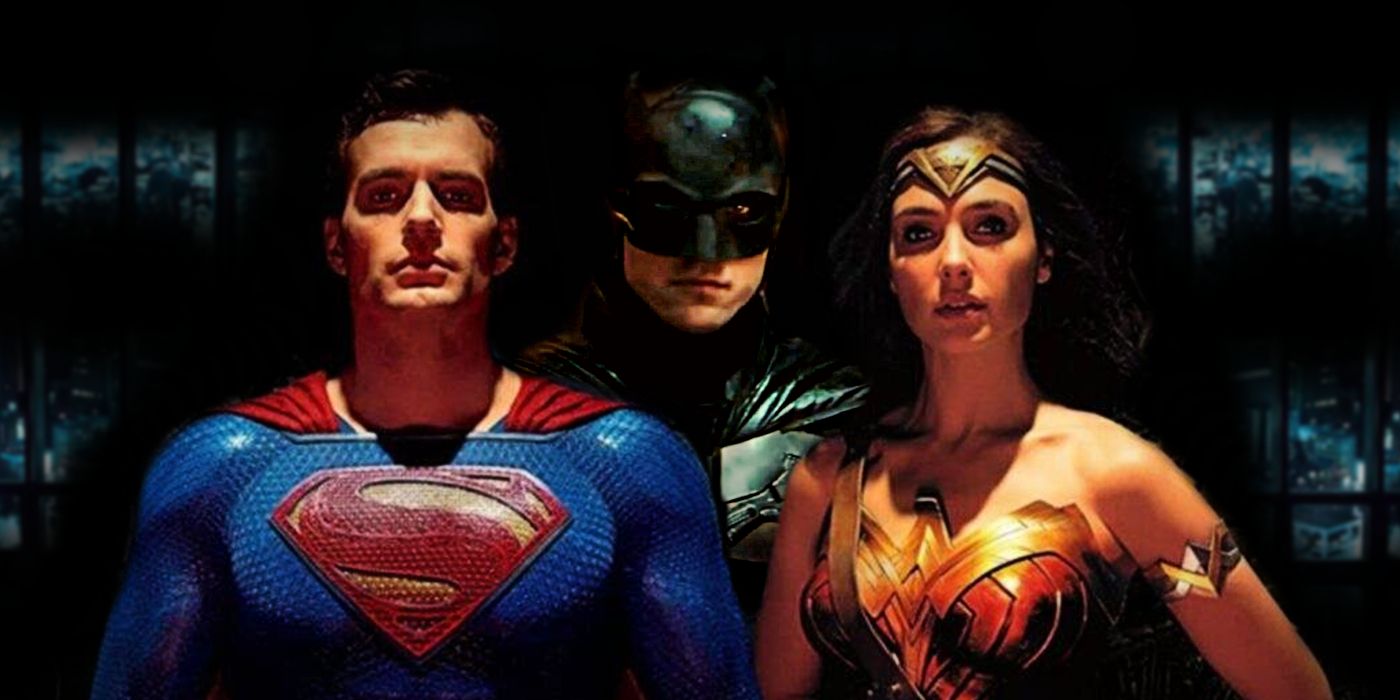
The Batman establishes that the Justice League exists in that world; here’s how they could help Bruce Wayne discover his identity and become a better hero. Co-written and directed by Matt Reeves (of Cloverfield fame), The Batman is yet another origin story for DC’s flagship character - played, this time, by Robert Pattinson - but is also set to present Gotham as a more morally ambiguous world than audiences are used to seeing in a mainstream superhero movie. While initially reported as a stand-alone project, set photos show that the Justice League exists within The Batman’s world, leading many fans to speculate that the superhero team will play a part in Bruce Wayne’s “discovery” of the Batman persona and possibly influence the type of hero he will become.
While the Batman trailers have made reference to other Batman-adjacent characters, set photographs have shown extras in both Superman and Wonder Woman costumes - confirming that the Justice League (or two of its founding members, at least) exist within The Batman’s universe. Additionally, in-universe posters feature the Flash’s lightning-bolt logo, confirming that he, too, exists, with fans speculating that the Justice League are actually popular fictional characters within Batman's Gotham City, mirroring our current preoccupation with superheroes in the real world.
Obviously, The Batman has yet to be released, so the extent of the Justice League’s involvement or what form their involvement might take remains to be seen - but the group’s presence is unlikely to be random. Like Marvel’s Logan, The Batman looks set to examine superheroes and superhero culture through a slightly different lens - possibly borrowing Logan’s conceit that previous superhero media has been heavily fictionalized, in-universe, and exists as a gaudy, childish counterpart to the grim realities that the characters end up facing. As such, it could ultimately be the background theme of heroism represented in the Justice League's likely-fictional deeds (and how Gotham views them) that sets Batman on the track to more idealistic heroism. Or, taking the opposite approach, he might end up railing against them and their unrealistic influence, doubling down on a more violent, guttural approach to crime-fighting as a result.
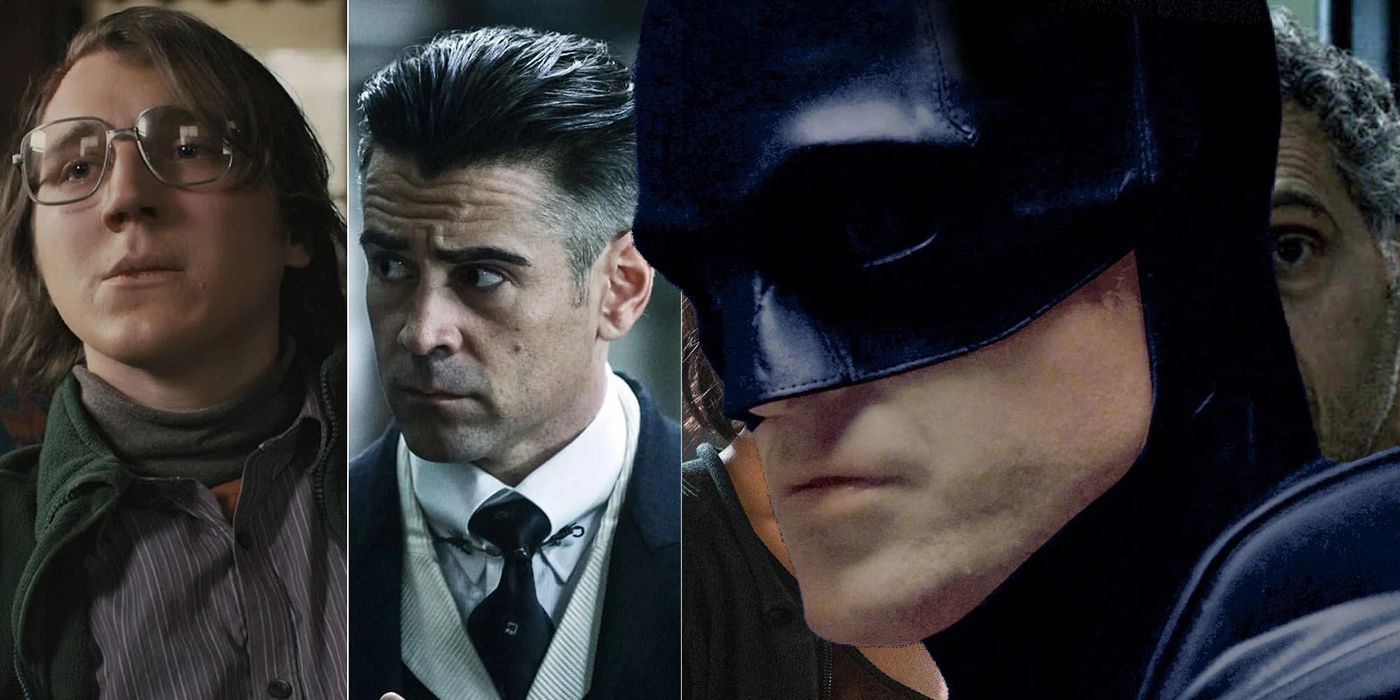
The Batman is set to present a morally grey world, akin to classic noir stories, with its ensemble cast existing across a wide moral spectrum. Gangsters, like Carmine Falcone (John Turturro) and Penguin (Colin Farrell), exist alongside vigilante serial killers, like the Riddler (Paul Dano), and anti-heroes, like Catwoman (Zoë Kravitz). There are good cops, like James Gordon (Jeffrey Wright), corrupt cops, and, in Batman’s case, vigilante heroes. The Justice League could provide Bruce Wayne with another moral viewpoint: the publicly-accepted image of what superheroes ought to be.
These labels are, of course, likely to blur and transform over the course of the film - with some speculating that Dano's Riddler, though billed as the main antagonist, might prove to be misunderstood. The trailers suggest that the Riddler is trying to uncover and shine a light on corruption within Gotham City - corruption that may or may not involve the Wayne family - but uses violent methods to do so. It's a path that may influence what type of hero Batman ultimately becomes if he compares the way Riddler operates to the Justice League.
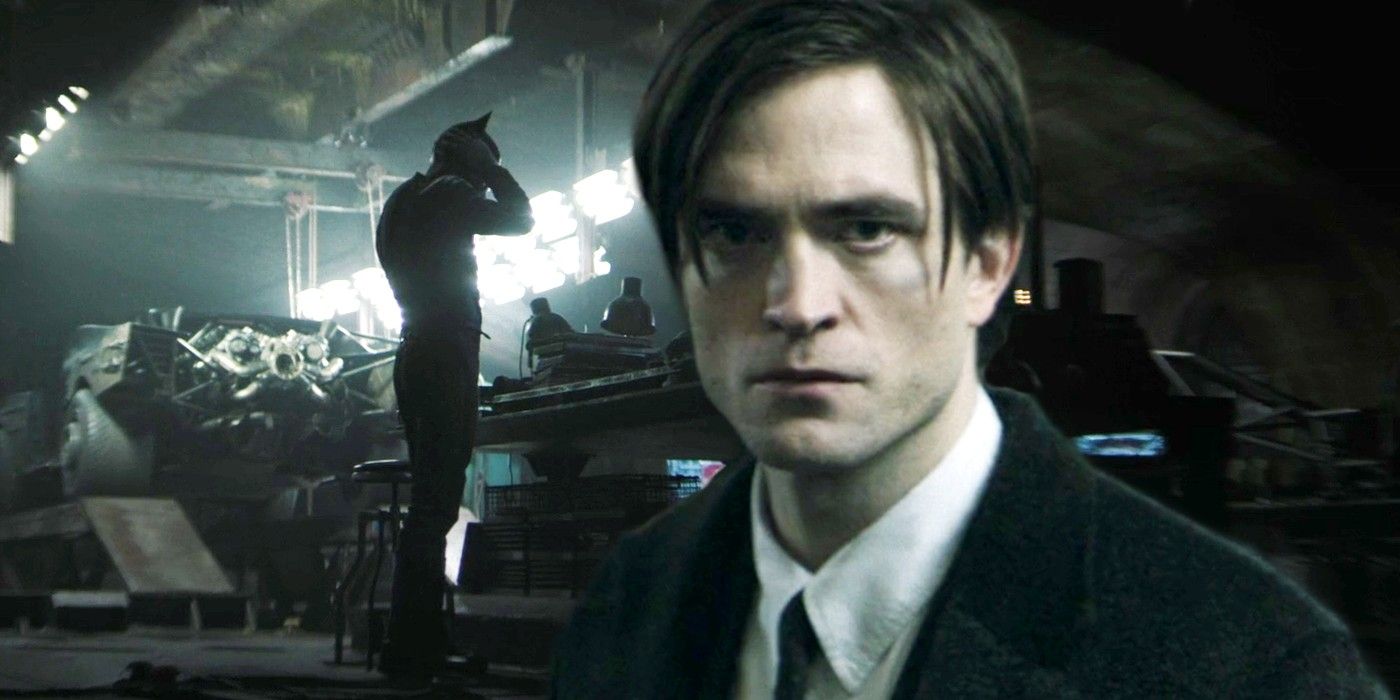
Considering that The Batman is supposed to be, if not another origin story, then certainly one set very early in his career as a hero, his vigilante worldview is still being molded. It will be interesting to see Bruce Wayne at his most easily influenced - without established methods or procedures in place. As such, the film will likely deal with Bruce Wayne trying to decide (or, rather, being forced to decide) what kind of hero he wants to be, with characters representing various ideologies and moral paths who will influence his final decision, for better or for worse. Since Batman has been interpreted in a variety of ways over his long history, whenever a new actor is cast in the role, speculation mounts as to what kind of Batman that actor will be. Fitting, then, that the film appears to be forming its narrative around that very question.
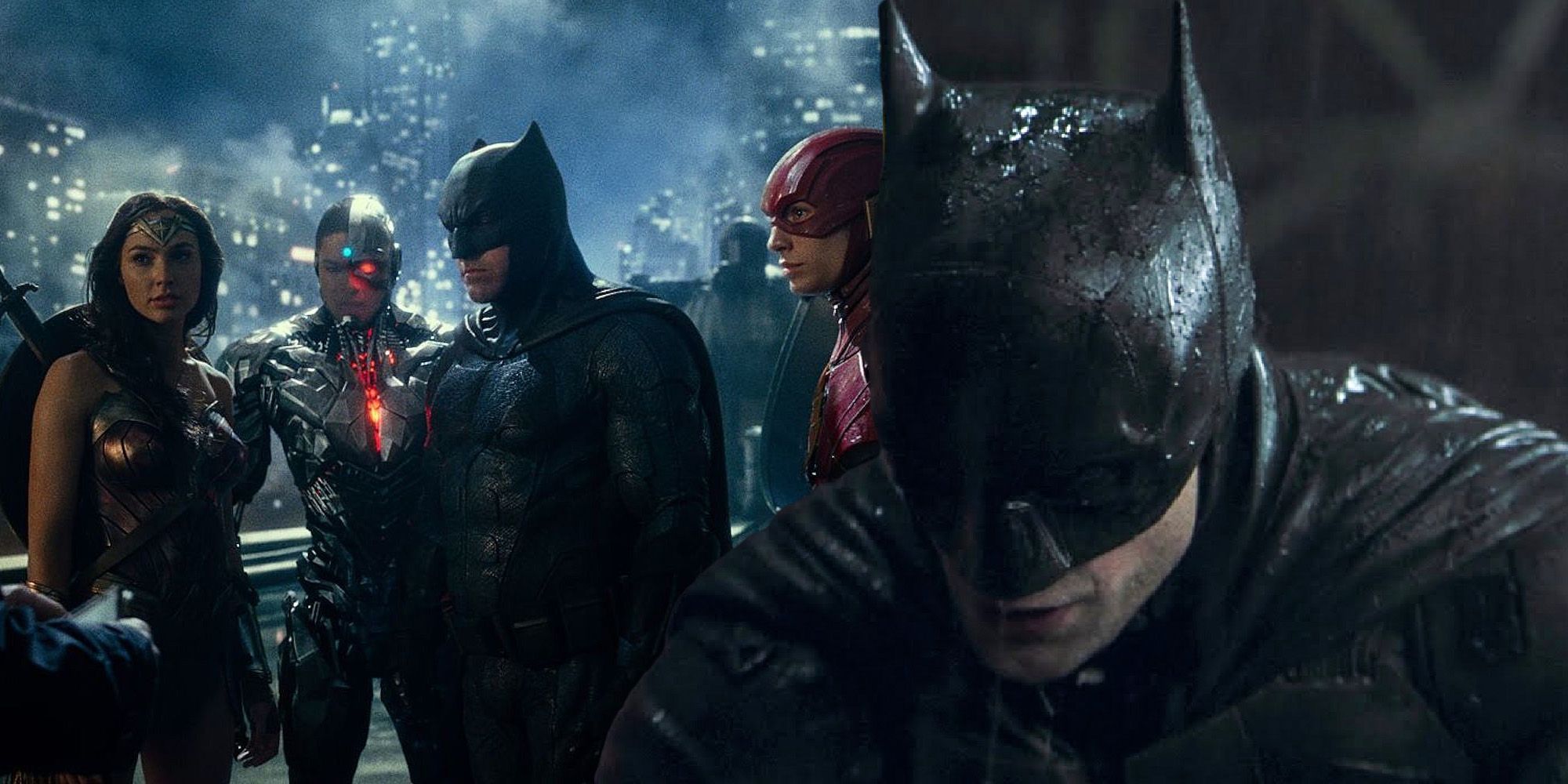
Rather than slamming Batman into the Justice League without bridging the gap between their retrospective tones, which negatively impacted the DCEU Justice League film, The Batman is set to establish a world wherein the Justice League already exists. Batman, as a concept, is growing to prominence in an era in which superheroes are popular and known; a refreshing change given the proliferation of superhero media in modern culture. The aforementioned set photos suggest that Superman and Wonder Woman are popular Halloween costumes in The Batman’s universe, and the Flash is featured on posters. Whether they exist in-universe as real figures or fictional characters remains to be seen, but - either way - they’re likely to influence Bruce Wayne’s approach to heroism.
At the start of the film, he very well could think the Justice League are gaudy, overblown, and unrealistic, but by the end of the film could come to begrudgingly respect what they stand for and even borrow some of their methods. While it’s unlikely that Pattinson’s Batman will join the Justice League anytime soon, their influence may open the doors for Robin or other Bat-family members to appear in a sequel and seed the idea of a superhero team-up. It would provide the set-up DC previously neglected to give Batman in favor of jumping straight into a crossover, shared universe event movie with 2016’s Batman v Superman: Dawn of Justice.
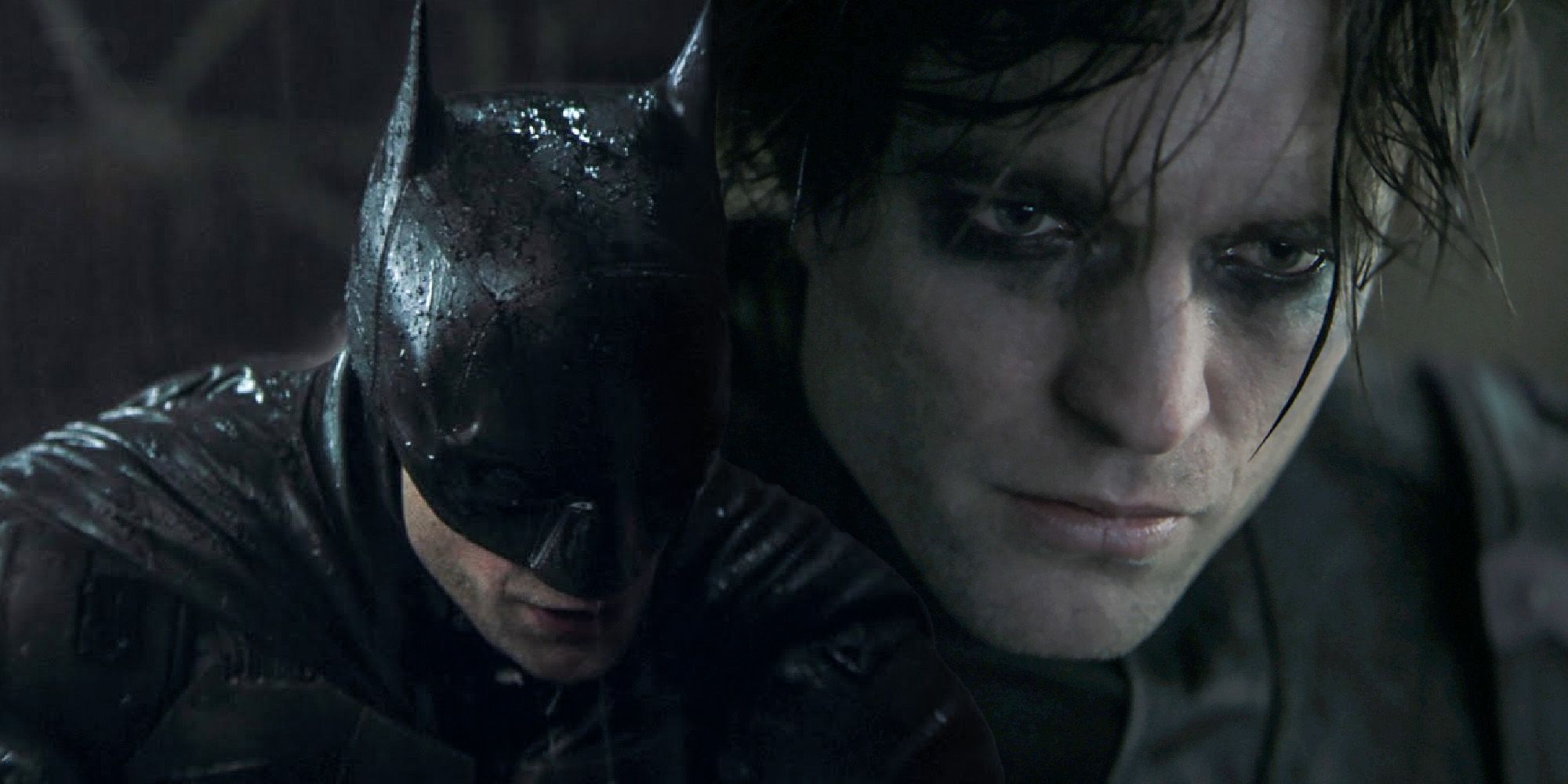
In noir fiction, protagonists are tasked with forging their own moral path through a crumbling society, uncovering dark truths yet tumbling further and further down the rabbit hole with every step they take. It's possible Batman rejects Riddler’s push toward vigilanteism after a conflict that incurs major consequences, choosing instead to become Gotham’s hero. In The Batman, Gotham citizens will already have a pretty defined image of superheroes in their heads, thanks to the presence of the Justice League. The team will no doubt influence Bruce Wayne’s journey in that regard, presenting a model that Batman may or may not come closer to conforming with by the time the credits roll.
From a business standpoint, it would make sense to bring Batman more in line with DC’s other superhero characters, thus reducing the tonal whiplash that can occur when properties cross over. But there’s always the possibility that the Justice League exists in-universe as a representation of the world’s problems; an idealized, rosy view of justice that The Batman works to dismantle. Either way, the Justice League is likely to influence Batman’s journey in some way, either as an inspiration or as a catalyst for change, and will ultimately aid Bruce Wayne in forging his own moral path through Gotham’s mean streets.
from ScreenRant - Feed

